Surgeons save hand severed by electric saw
- Published
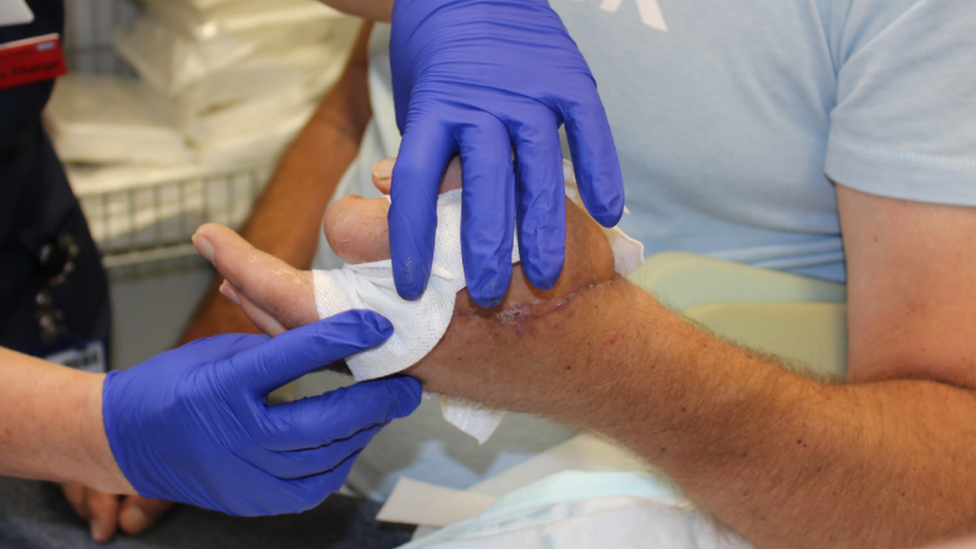
A carpenter whose hand was left hanging by skin and bone after a horrific accident with an electric saw has had it successfully reattached by surgeons.
Anthony Lelliott, 46, almost completely severed his left hand in two places while cutting floorboards with the power tool.
It took surgeons at St George's Hospital in South London 17 hours to repair the damage.
They say it is one of the worst cases they have ever seen.
Consultant plastic surgeon Roger Adlard performed the initial 13-hour operation with his colleague Farida Ali.
Mr Adlard said: "There are many surgeons who, once they'd seen that level of injury, would think it was unsalvageable. [Mr Lelliott] had taken out a swathe of tissue. The saw he used had curved teeth on it. It doesn't just cut a nice straight line."
Mr Lelliott's hand was still attached, but only by skin and small bit of bone. He had lost a lot of blood at the scene and doesn't remember much about his accident.
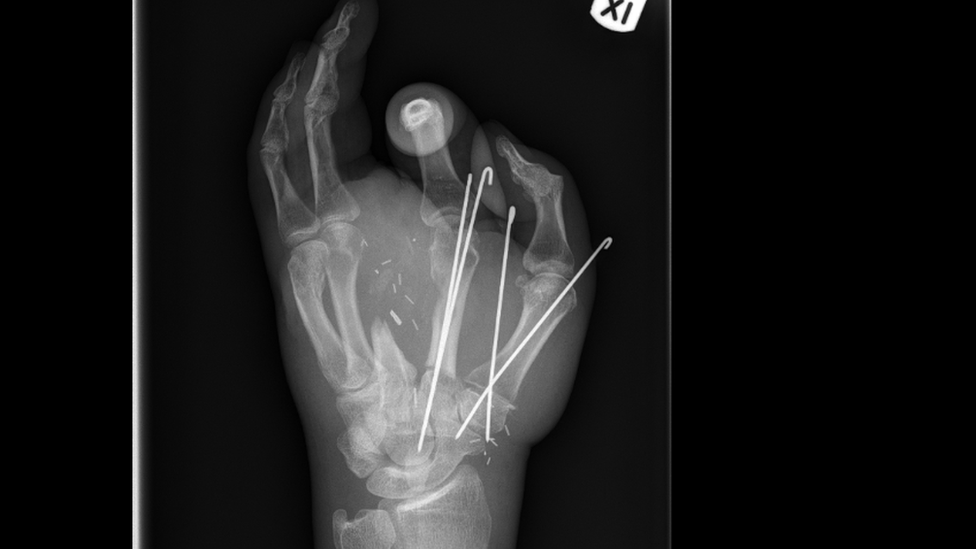
Mr Lelloitt's hand after the surgery
He said: "I threw myself off the saw. I don't know whether it was my brain playing tricks on me, but it was like an out-of-body experience; I could see myself and see what I'd done. There was blood spurting out everywhere."
"All I remember was coming through the doors into A&E and being greeted by a phenomenal amount of people. I couldn't count them."
Mr Adlard said once in theatre they realised the injuries were worse than initially thought.
"We had to join not just tendons and nerves and arteries but put in grafts for every single piece of tissue that we needed to repair.
"It had been described as a sub-total hand amputation, which was true. However, it had been cut off almost completely in two places - at the base of his palm and again just below the fingers - resulting in a double-level amputation.
"I knew then that it was going to be a very long operation."
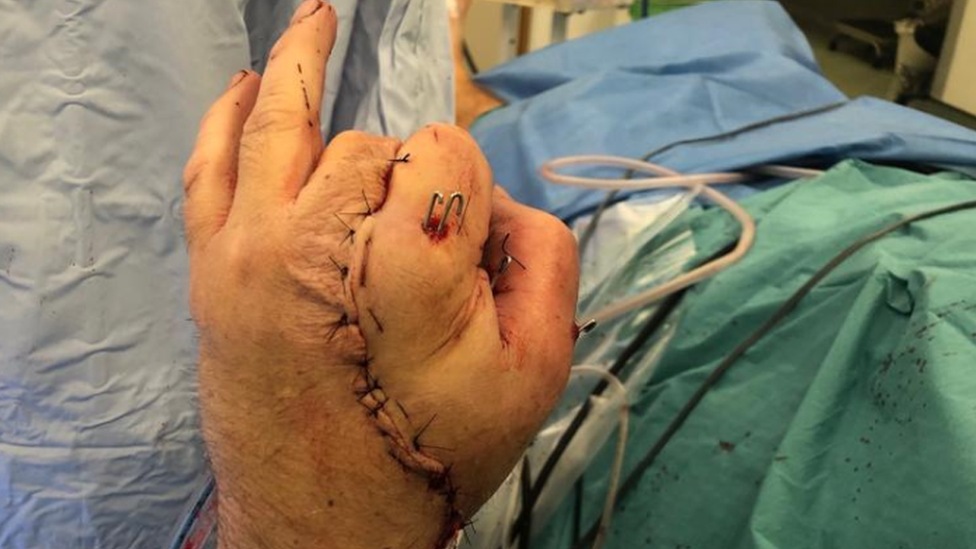
In the first operation the surgical team worked through the night to establish a good blood and nerve supply to as many of the fingers as possible.
After fixing the broken bones, they took veins from Mr Lelliott's foot and nerves from his forearm to use in the repair to his hand.
Mr Adlard said: "Farida and I took it in turns, with one of us taking veins from his foot and the other stitching the veins to arteries in his hand using a microscope and a very small needle.
"Every microsurgical repair takes a lot of concentration, so it was useful to be able to alternate between two surgeons.
"We did the same thing for his nerve grafts harvested from his forearm and I repaired any tendons that I could."
After the operation, the doctors noticed some of the skin on Mr Lelliott's palm was infected and dying and that his middle finger was still too badly damaged to be saved.
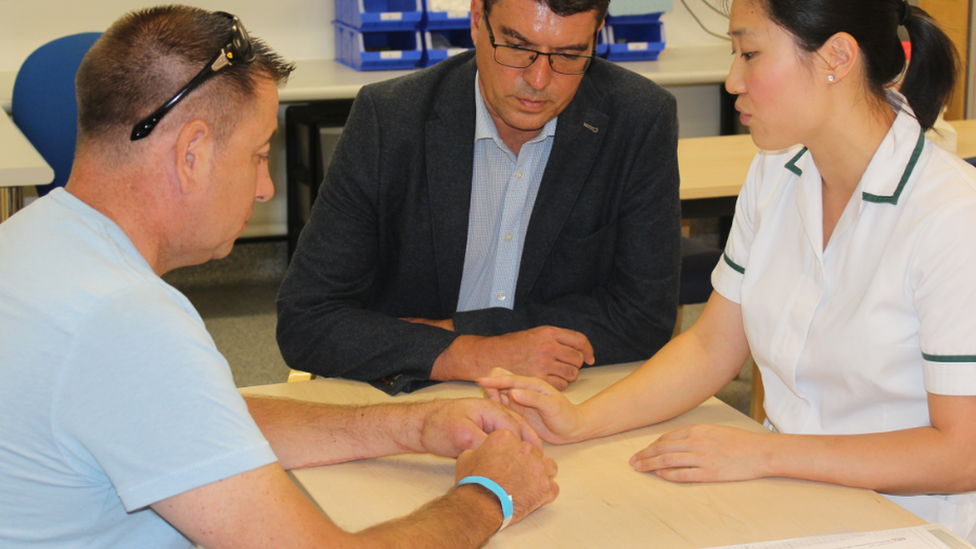
"We made the decision that to save the rest of his hand, we'd sacrifice his middle finger and effectively fillet it to help reconstruct the skin and bone which was missing from his palm."
The next problem was finding enough skin to cover the area.
The surgeons decided to cut a flap of skin from his groin and surgically bury Mr Lelliott's injured palm into this wound and leave it there for two weeks to grow the new covering for his palm.
Mr Lelliott, from Walton-on-Thames, in Surrey, has regained some movement in his hand and is having regular physiotherapy sessions to gain more function and hopefully, be able to return to work.
Mr Adlard said: "Tony is very realistic about things. It's never going to be a normal hand for him. We hope that sensation will return to some degree. He already has pinch grip, which is really good, so he can hold a pen between his thumb and index finger.
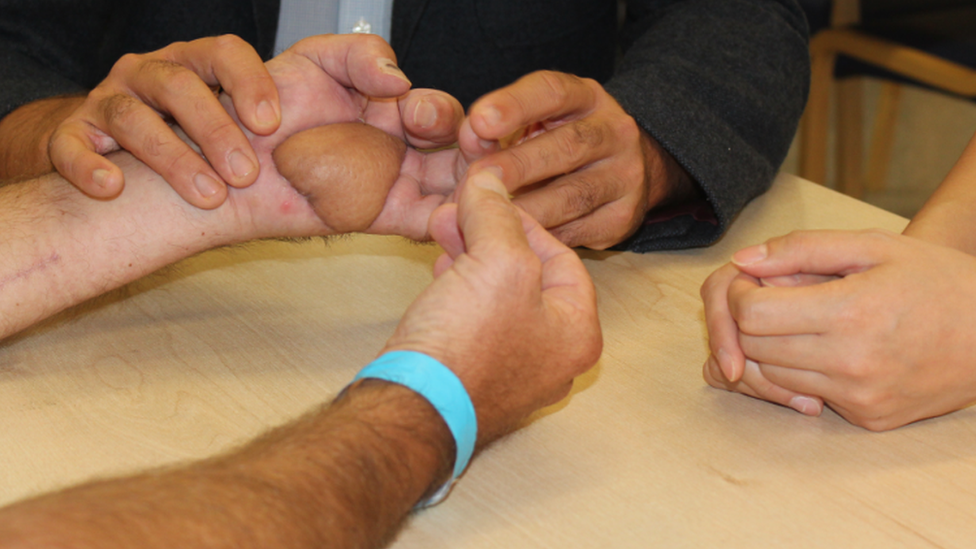
"The final function that we are hoping to restore, which will require more surgery, is power grip so he can hold a hammer in his hand or a pint of beer."
Mr Lelliott said: "The care I've received has been fantastic and I've got so much gratitude for everyone. Words can't describe it because I was expecting to wake up without a hand. It's just trying to get it to work now. It's unbelievable, really, I'm so grateful."